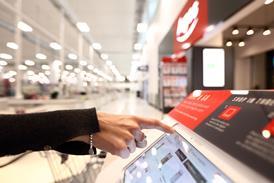Analysis: How coronavirus forced the Co-op to fix what wasn’t broken

Buoyed by six consecutive years of like-for-like growth, the Co-op could have justly looked forward to another bumper year in 2020. But the coronavirus has forced it to fundamentally rethink a strategy that was reaping rewards.
In its results statement covering the 52 weeks to January 4, Co-op chief executive Steve Murrells said that the coronavirus crisis prompted the mutual to “review the strategy we had embedded across our businesses”.
The results point out that the Co-op has incurred £200m worth of additional costs associated to the coronavirus outbreak. The pandemic has also seen the convenience store retailer bring forward some capex spend to meet related strategic issues.
While some of these costs will be met by increased food sales and expected business rates reliefs, it has still forced the Co-op into strategic changes that, in normal circumstances, it would not have needed to consider.
Retail Week spoke to Murrells and the Co-op’s food boss Jo Whitfield about some of the key strategic areas that have required a rethink due to the ongoing coronavirus crisis, and what that will mean for the future of the business.
Already have an account? Sign in here



















